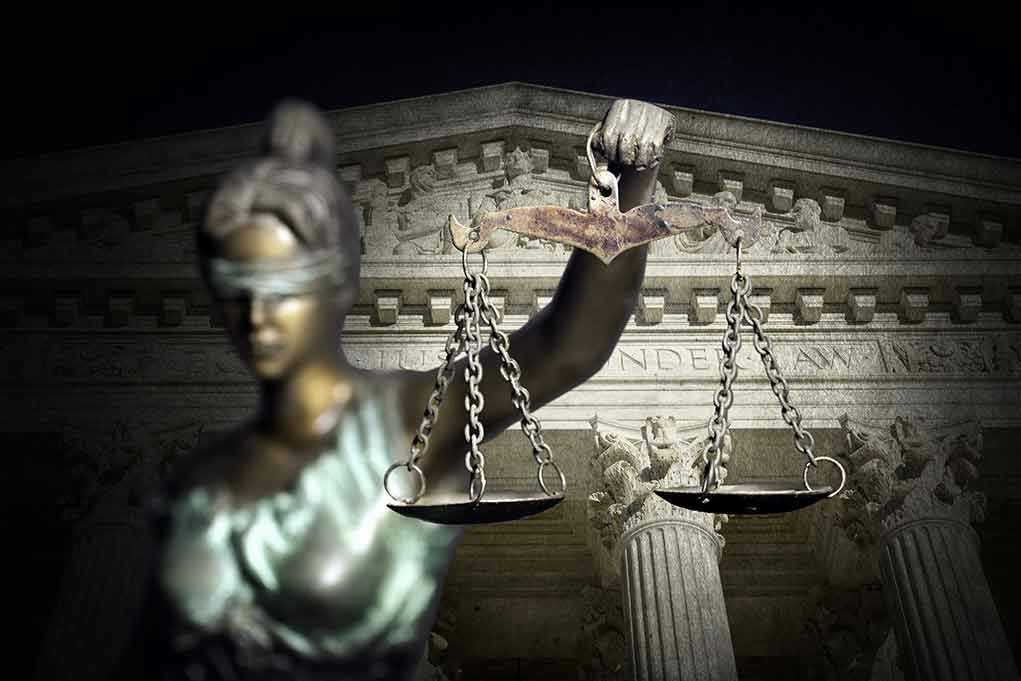
An attempted attack near the Supreme Court’s Red Mass exposes persistent threats to American institutions and underscores the urgent need for robust security and constitutional vigilance.
Story Snapshot
- A man was arrested with a Molotov cocktail outside a D.C. church during the Supreme Court’s term-opening Red Mass.
- The incident renews concerns about violence targeting public institutions and religious gatherings.
- Authorities confirm the suspect had been previously banned from the premises, highlighting lapses in enforcement.
- The event prompts questions about security for Supreme Court justices and the broader climate of anti-institutional hostility.
Molotov Cocktail Arrest at Key Supreme Court Event Raises Alarm
On October 5, 2025, D.C. Metropolitan Police arrested Louis Geri, a 41-year-old man from New Jersey, after discovering a suspected Molotov cocktail among his belongings outside St. Matthew’s Cathedral. The incident coincided with the annual Red Mass, a significant event marking the start of the Supreme Court’s term and attended by justices, clergy, and community leaders. Geri was found camping on the cathedral steps and refused to comply with police requests to leave, prompting a search that uncovered the incendiary device and other suspicious items. This alarming episode brings renewed scrutiny to security protocols during high-profile public and religious events.
The Red Mass has deep roots in American history, serving as a traditional Catholic service that invokes blessings on those tasked with administering justice, including the Supreme Court’s justices. In today’s contentious political environment, gatherings like these have become flashpoints for protest and, as this case shows, potentially violent disruption. Recent years have seen heightened attention to the risks facing judicial figures, especially following the failed assassination attempt on Justice Brett Kavanaugh in 2022 and other attacks on places of worship. Such incidents reflect a pattern of escalating hostility against both religious and governmental institutions, placing foundational American values at risk and demanding vigilance from authorities and citizens alike.
Security Gaps and Law Enforcement Response
Authorities immediately charged Geri with unlawful entry, threats to kidnap or injure, and possession of a Molotov cocktail. Notably, he had already been banned from the church property prior to the event, raising questions about how such bans are enforced and whether current measures are sufficient to protect sensitive locations and high-profile individuals. The police response was swift, securing the area and temporarily closing the cathedral’s main entrance to ensure public safety. The investigation into Geri’s motives continues, with law enforcement prioritizing the safety of Supreme Court justices and event attendees amid ongoing legal proceedings.
Attacks and threats against faith communities and public officials are not isolated occurrences; they are part of a troubling trend that undermines the safety and stability of American society. The attempted attack near the Supreme Court’s Red Mass is the latest in a series of incidents targeting religious and governmental institutions, including a recent attack on a Mormon church in Michigan. For conservatives, these actions represent not only a challenge to public safety but also a direct assault on the foundational principles of religious liberty, judicial independence, and the rule of law. The cost of increased security—both financial and social—is a burden that communities must now bear to defend these core values.
Broader Implications and the Need for Vigilance
The immediate effect of the arrest is heightened security at similar events, but the long-term implications are more profound. Americans are being forced to reckon with the reality that public figures—especially those upholding constitutional principles—face growing risks from individuals intent on destabilizing the nation’s institutions. The incident at St. Matthew’s Cathedral serves as a reminder that threats to religious freedom, family values, and the integrity of the judiciary often manifest in tangible, dangerous ways. To secure the nation’s future, it is vital for law enforcement, policymakers, and citizens to remain alert and uphold robust protections for both public safety and constitutional rights.
While authorities have yet to release a clear motive, the facts of the case highlight the necessity of unwavering support for security around America’s most cherished institutions. The ongoing investigation will determine whether this is part of a larger pattern of anti-institutional hostility or an isolated act, but the lesson remains clear: Americans must remain steadfast in defending the Constitution, supporting law enforcement, and resisting any agenda—woke, radical, or otherwise—that would erode the nation’s core values or endanger its leaders. Only with vigilance and commitment to foundational principles can these threats be overcome.
Sources:
Man Arrested with Molotov Cocktail Outside D.C. Church Marking New Supreme Court Term
Man Arrested For Having Molotov Cocktail Outside Church




